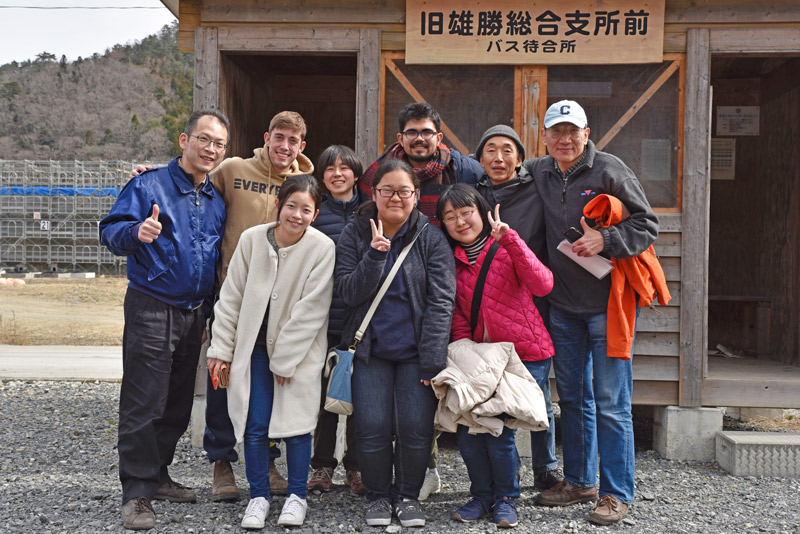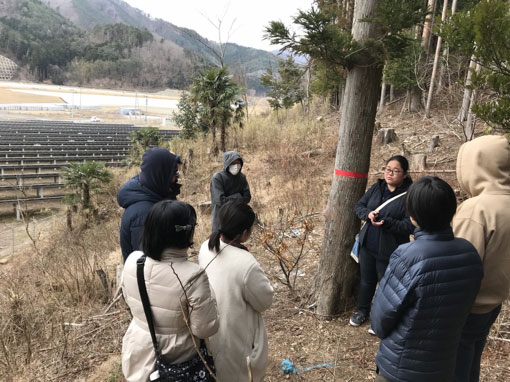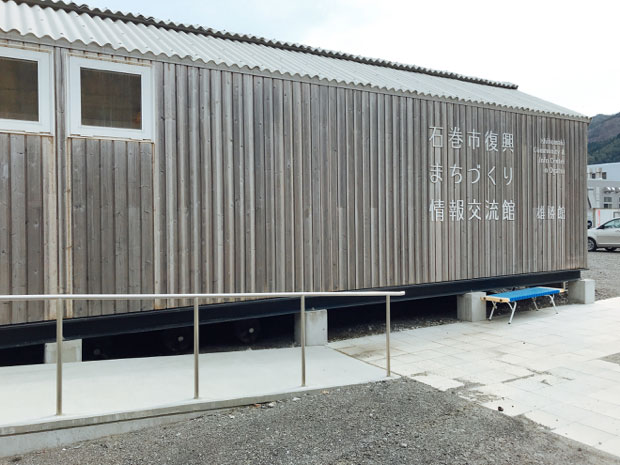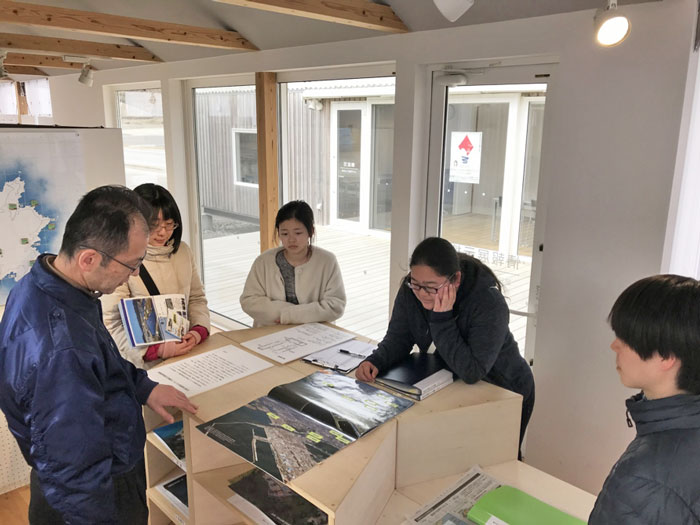ICU Student Hikari Okada Shares His Volunteer Experience in Tohoku

JICUF has been supporting Team Asunaro’s volunteer activities in the Tohoku Region for several years. Team Asunaro is a volunteer group led by Mr. Shimpei Suga, which has been organizing recovery efforts in Tohoku since June 2011, just three months after the Great East Japan Earthquake. Professor Etsuko Kato (anthropology) has been recruiting ICU students to participate in Team Asunaro’s activities, and has received multiple grants from JICUF in the last few years. JICUF grants have mainly been used to cover the transportation and accommodation fees for student volunteers. Students typically visit Tohoku over the weekend, with Mr. Suga leading the trip. (Read our past interview with Mr. Suga.)
Hikari Okada is a sophomore student who participated in one such trip from March 16th to 18th. We asked him to share his experience.

“Hometown and Community” by Hikari Okada
My trip to Ishinomaki this March taught me that knowledge of one’s hometown and community are indispensable when preparing for unpredictable future disasters. Before the trip, I was only expecting to observe the situation in Ishinomaki seven years since the Tōhoku earthquake and tsunami. However, through the activity I ended up learning that surviving a disaster involves listening to storytellers. I would like to mention the second day of my trip in particular.
That day, we went to Ogatsu in Ishinomaki to meet Fujimoto Nodoka san, a recent high school graduate who was both a storyteller (katari-be) and a member of Team Asunaro. For seven years, she has talked about what she experienced when the disaster occurred. As we were guided to an evacuation route which went up a hill from behind Ogatsu elementary school, we listened closely to her experience. Looking at the scenery, she calmly related how the town used to be, and how all buildings had been immediately swept away by the tsunami. Surprisingly, the people who made the appropriate judgement to evacuate and lead the children to shelter were not the teachers, but the parents and other locals who had learned every inch of the neighborhood and the related effects of tsunamis through tradition. What’s more, I was impressed to hear that each survivor, including young children, had found their own way to help each other at the evacuation site without any instructions. For example, Fujimoto-san had carried drinking water from a stream back to the shelter, and younger students had collected the vegetables stored underground with their school backpacks. In addition to these experiences, we realized that she had a lot of knowledge about local industry and history in her hometown. Through her sharing, I understood that close relationships and strong community made it possible to help the most residents in Ogatsu. Although her family was forced to move to the city center of Ishinomaki, this April she is returning to Ogatsu to work at Moriumius Lusail, an educational facility that enables urban children to experience the nature and life of Ogatsu.
Thinking back, I realize I am not as familiar with my own hometown in Tokyo as she is with Ogatsu. I was born and raised in my hometown, but my family only has close relationships with several other families. Furthermore, since there is no uniqueness in recent years anymore due to the remarkable decrease of local shops and appearances of big chains, I cannot be proud of being from the town despite it being a place where many Japanese people want to live. Therefore, in the event of a once-in-a-century catastrophe in Tokyo, I would not know how to protect myself and survive with neighbors due to my lack of local knowledge and affection. Through my meeting with Fujimoto-san, I’m gradually becoming interested in my hometown and I’ve recognized the importance of coming into contact with local people. At the same time, I acknowledge that her suggested methods won’t work with the difficulty of forging relationships in urban areas where individualism prevails.
Overall, I could not have come to these realizations without local people’s hospitality. Also, I highly appreciate the careful planning of this trip by Team Asunaro and the financial assistance by JICUF. Based on this experience, I want to share my thoughts with friends and come to be proud of my hometown in order to foresee the invisible risks in our daily lives. Now, I believe that it is essential to protect people’s lives in the future.
Team Asunaro not only seeks student volunteers, but general volunteers as well. They will continue to make monthly trips to Tohoku, and activities until April 2019 have been planned. See the schedule here. To participate, contact Mr. Shimpei Suga by e-mail or Facebook.





